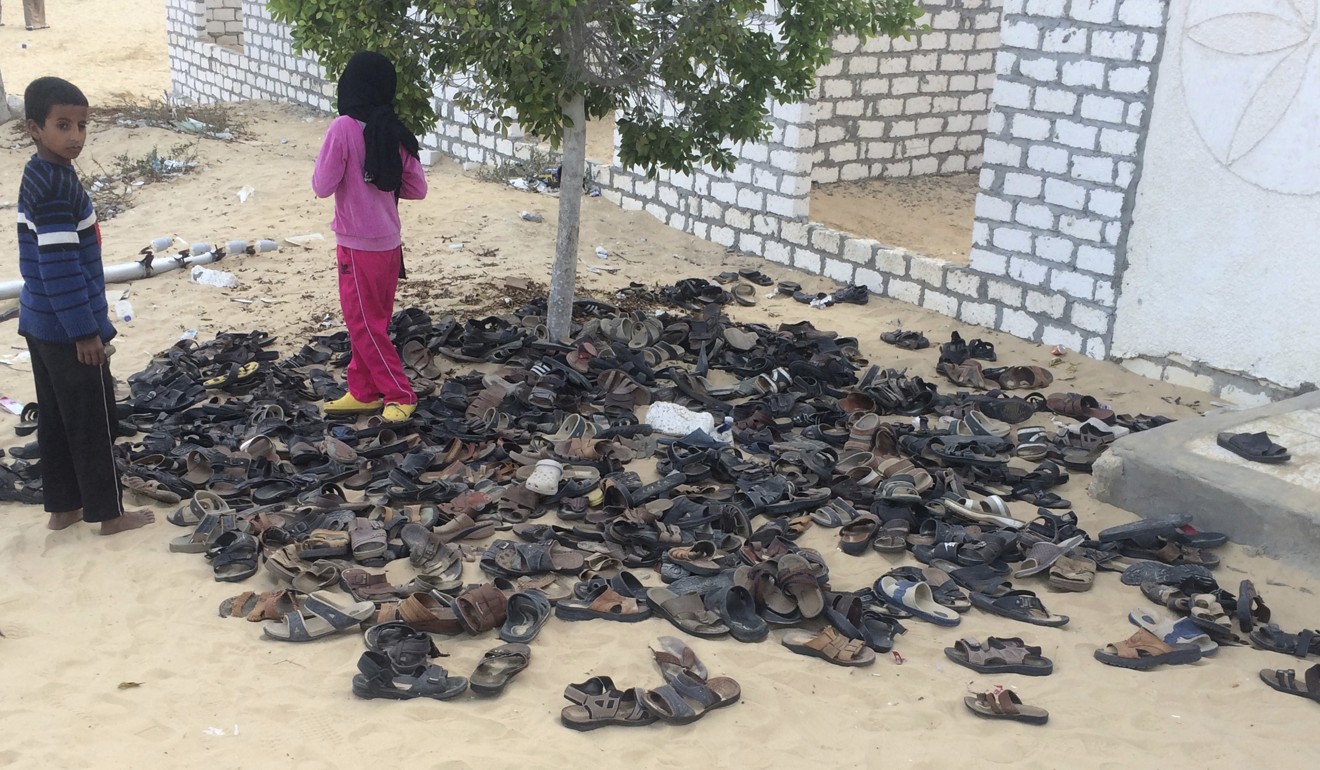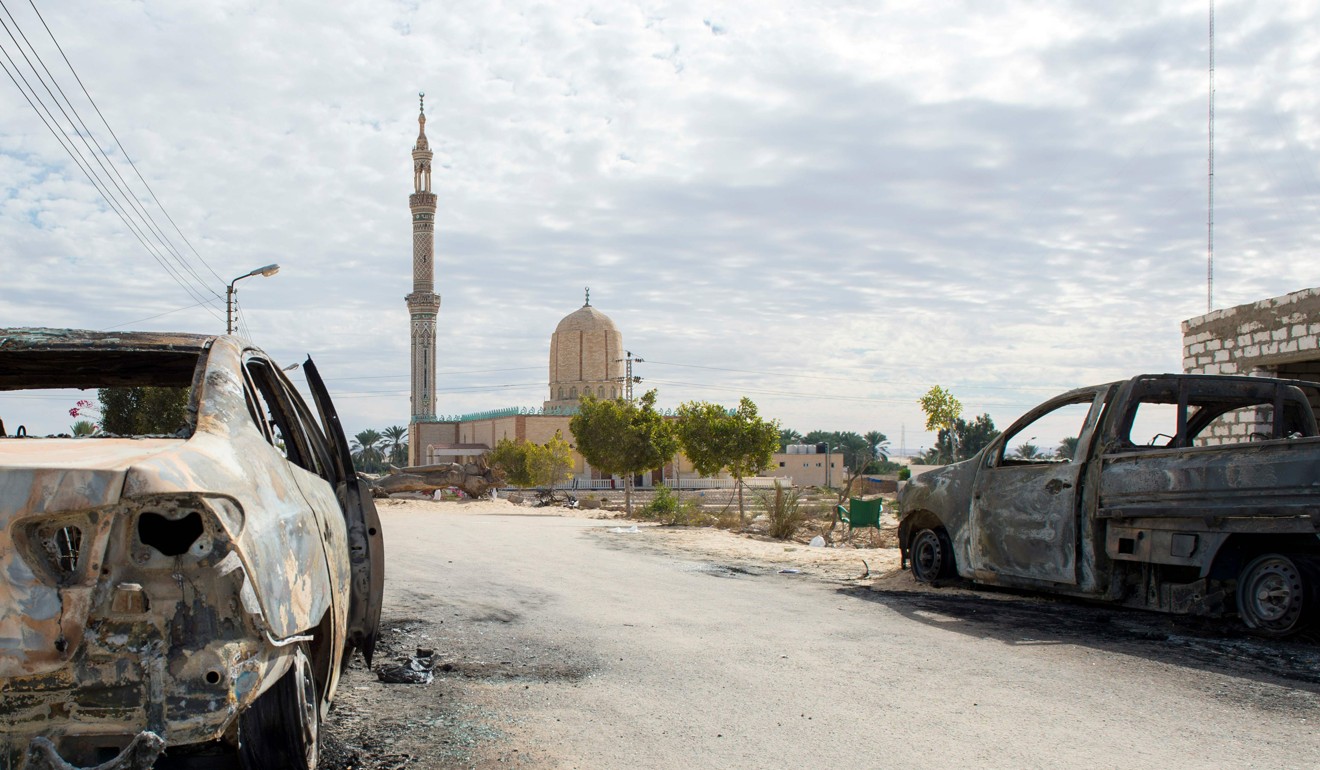
Analysis | Extremists attacked mosque in Egypt because they believe Sufi Muslim worshippers are heretics who must be ‘eradicated’
Rawda Mosque is frequented by Sufi Muslims, followers of a mystical form of Islam that is deemed to be heretical by Islamic State and other Sunni extremists
It “was horrific,” local Ibrahim Sheteewi told The New York Times.
“The bodies were scattered on the ground outside the mosque.”
The assault shocked Egyptians for another reason: attacks on mosques are unusual in Egypt.
“I can’t believe they attacked a mosque,” a Muslim cleric in Bir al-Abed said.
The mosque is a focal point for both Shiite and Sufi Muslims, who chanted poems in praise of the prophet Muhammad and crowded a room said to house the tomb of one of his granddaughters.
It is practices such as these that have made the Sufi tradition a target of Islamic State, which considers the veneration of tombs to be blasphemous.
But to understand why this mosque was targeted, it’s important to understand how Sunni extremists see Sufism.
Sufism is a strand of Islam that eschews materialism and emphasises the inward search for God. Sufi adherents are responsible for some of Islam’s most famous and beloved literature, including the poems of Rumi. Followers promote values such as tolerance and pluralism.
Sufi believers can be Sunni or Shiite, though the majority are Sunni. They see Sufism less as a sect than as a way of being, a set of beliefs and practices that lead followers closer to God.
“It is nothing more than the spiritual dimension,” Imam Feisal Abdul Rauf told The New York Times. “It is Islam, but we focus on meditation, on chanting sessions, which enable the Muslim to have his or her heart open. The myths people have about Sufis are analogous to the myths people have about Muslims.”
A University of Michigan scholar on Islam, Alexander Knysh, summed up the tenets of Sufism as: “love, peace, tolerance”.

It’s an interpretation of Islam that is radically different from what Sunni extremists believe. Many extremists see Sufism as heretical, followed only by apostates.
Though no group has claimed Friday’s assault, the attackers reportedly carried the banner of Islamic State.
More and more, extremists are willing to target Sufi mosques.
“Opponents of Sufism see the shrines and these living saints as idols,” Knysh told The New York Times.
“Their existence and their worship violates the main principle of Islam, which is the uniqueness of God and the uniqueness of the object of worship.”
When al-Qaeda captured northern Mali in 2012, militants destroyed the ancient mausoleums of Sufi saints in Timbuktu.

In fall 2016, Islamic State’s local affiliate claimed to have executed a 100-year-old Sufi cleric in Egypt.
Not all Muslim extremists believe that Sufis should be targeted.
In Mali, the assailants had acted without the permission of their leaders, and they were reprimanded. In general, al-Qaeda has shied away from conducting attacks on Sufis, though the group has been willing to destroy Sufi sites.
Islamic State, though, sees things differently. Its followers have targeted Sufi people, lumping them in with other non-believers.
In an interview with an Islamic State magazine in January, one of the organisation’s top commanders in Sinai outlined his hatred for Sufism.
He labelled Rawda, the district where Friday’s attack occurred, as one of three areas dominated by Sufis that his group hoped to “eradicate”.
Five things about Sufism and its followers in Egypt
● Sufism is a mystical form of Islam considered an integral part of the faith by its followers. They belong to “turuq”, Arabic for orders, which are founded by masters who trace their learnings to the teachings of the Prophet Muhammad.
● Egypt has millions of Sufi followers, with the unofficial figure estimated to be around 15 million in the country. They follow over 17 orders or methods.
● Shrines of Sufi saints are found across the country and celebrations of their saints’ birthdays are very popular, drawing millions of Egyptians.
● Though they shun politics and worldly matters, Sufis are constantly under attack by the ultra-conservative Salafis who consider them heretics and condemn their “innovations” or rituals. The customarily bearded Salafis have carried out a series of attacks against Sufi shrines, driving Sufi leaders to close ranks with government and anti-Islamists. They heavily supported the removal of Islamist President Mohammed Morsi in 2013 and threw their support behind the army chief-turned-president Abdel-Fattah el-Sissi’s crackdown on Islamists.
● Not a sect, there are Sufi Sunnis and Shiites. Mosques named after Sufi saints and masters are attended by all Muslims.
Additional reporting by Associated Press and Tribune News Service

